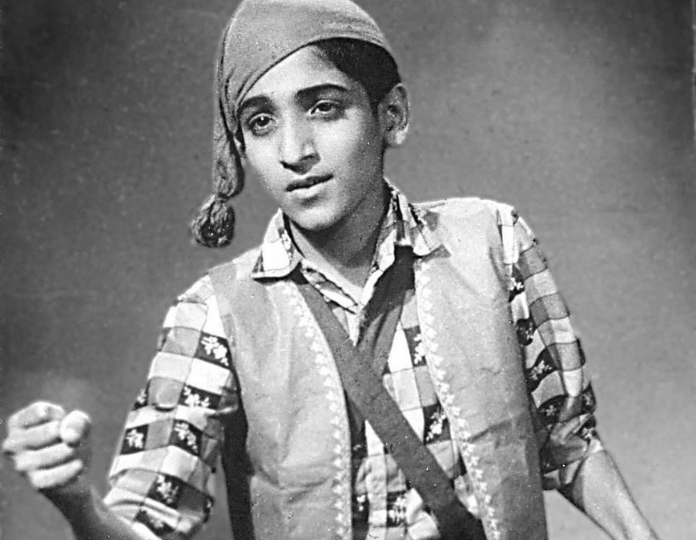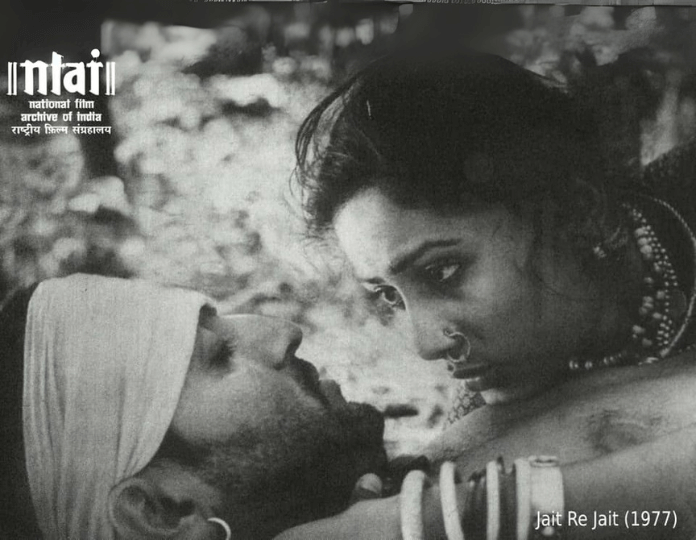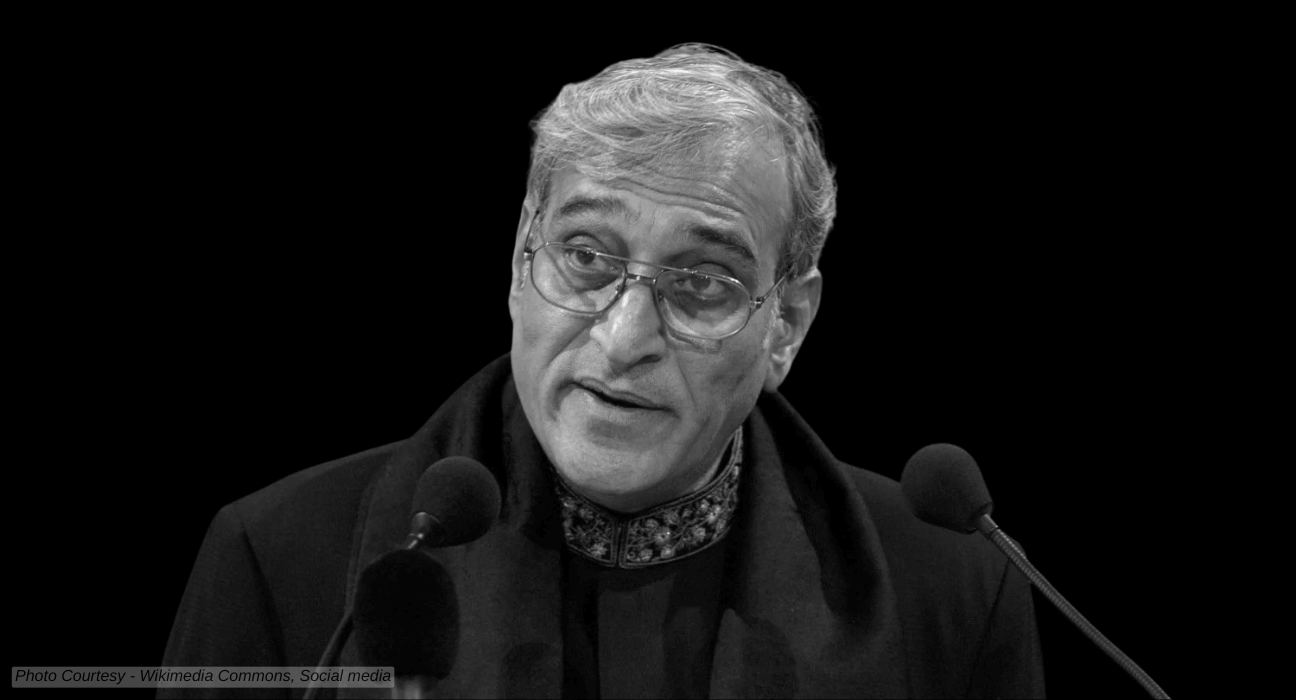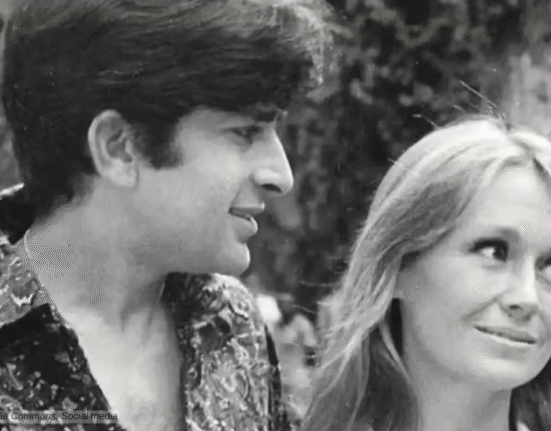The legendary actor and pioneering figure in psychiatry, Mohan Agashe, is known for his versatility and excellence in the field of cinema and medicine, but many of us remember him as the “Bol Bhole Bol,” baba in Trimurti. Some of his other memorable roles came in “Samna,” “Jait Re Jait,” “Sadgati,” “Paar,” “Mrityudand,” “Gangaajal,” and many more.
Early Life
Dr. Mohan Agashe was born on July 23, 1947, in Bhor, Maharashtra, India into a modest family. His father, Mahadeo Agashe, worked as a stenographer, facing restrictions from his own father on further education. The family lived in Pune, where Mohan spent his early years. Mohan attended NVM High School & Junior College, a Marathi medium school in Budhwar Peth, Pune.
He pursued medicine at B.J. Medical College, Pune, earning an MBBS and an MD in Psychiatry. His academic focus on psychiatry shaped his dual career. He later served as a professor, balancing teaching with his growing interest in acting.
A Multifaced Personality

Mohan Agashe was active in theatre from a young age. He was part of Sai Paranjape’s chirdren theatre group, “Children’s Play.”
His academic pursuits in psychiatry were not just confined to teaching; they extended to significant research and policy-making contributions. Dr. Agashe has also done significant work in the fields of clinical psychology and psychopharmacology. Notably, he played a pivotal role in establishing the Maharashtra Institute of Mental Health in 1991.
His research on the psychological trauma of the 1993 Latur earthquake underlines his dedication to understanding and mitigating the impacts of disasters on mental health. Mohan Agashe’s advisory role to the Government of Maharashtra and his involvement in Indo-US collaborative projects further highlight his stature in the field of mental health.
Acting Career
Parallel to his medical career, Mohan Agashe nurtured a deep passion for acting. He joined the Pune Progressive Dramatic Association, acting in plays like “Dhanya Mi Kritarth* and “Katkon Trikon.” Some of his other famous plays include “Daakghar,” “Ashi Pakhare Yeti,” “Ghashiram Kotval,” “Adhe Adhure,” “Jara Samjhun Ghya,” and many more.
He started his film career with “Garambicha Bapu” in 1970. Mohan Agashe’s breakthrough came with Samna (1975), directed by Jabbar Patel. The film, a socio-political drama, explores power dynamics in rural Maharashtra. It centers around the disappearance of an activist, Maruti Kamble, played by Mohan Agashe. The people were too afraid to talk about Maruti because of the local industrialist played by Nilu Phule. The narrative unfolds through a confrontation with a reformist ex-freedom fighter (Sriram Lagoo), who accidentally came to the village and decided to investigate the matter. The film earned a nomination for the Golden Bear at the 25th Berlin International Film Festival.
Jait Re Jait
His collaboration witj Jabbar Patel gave us Jait Re Jait (1977), a National Film Award-winning Marathi film based on G.N. Dandekar’s novel. It focuses on the Thakkar tribal community, depicting the love story of Nagya, a drummer, and Chindi (Smita Patil), a married woman who leaves her husband. Nagya has an obsession, to flew away the bees, because the attacked him onece. Agashe portrays Nagya, embodying the character’s passion, resilience and madness. The film’s music, composed by Hridyanath Mangeshkar with lyrics by N. D. Mahanor, complements its semi-musical style. Its authentic portrayal of adivasi life, using real tribal actors, and stellar performances by Agashe and Smita Patil earned it the President’s Silver Medal for Best Feature Film in Marathi.


In 1975 he worked in Shyam Benegal‘s “Nishant” as a leachurous brother of cruel village Jagirdar Amrish Puri. He again worked with Bengal in “Manthan (1976),” a film based on the white revolution and in Bhumika (1977), the biopic of Marathi actress Hansa Wadkar. He then starred in critically acclaimed films like Jabbar Patel’s “Sinhasan (1980),” Govind Nihlani‘s “Aakrosh (1980),” and “Susman (1987),” Satyajit Ray’s “Sadgati (1981),” Gautam Ghose’s “Paar.”
Other Work
In Subhash Ghai‘s Trimurti (1995), directed by Mukul Anand, he played Kooka, a legendary villain. People cant forget his iconic “Bol Bhole Bol Tujhe Kya Chahiye,” despite films failure at the box office. He also acted in Gulzar‘s political drama Hu Tu Tu (1999), and MF Hussain’s musical Gaja Gamini (2000).
Some of his other notable films include Uprant (1987), Maha Yatra (1987), The Perfect Murder (1988), Rihaee (1987), Suryodaya (1991), Mississippi Masala (1991), Mohini (1995), Feluda 30 (1996), Mrityudand (1997), Bombay Blue (1998), Seducing Maarya (2000), Aks (2001), Gangaajal (2003), Apaharan (2005), Rang De Basanti (2006), and many more.
Dr. Mohan Agashe was also the director of the Film and Television Institute of India from April 1997 to April 2002. In more recent years, Agashe has continued to be a prominent figure in Indian cinema. His roles in films like “Maai Baap (2007),” “Khel Saat Baaracha (2010),” “Gadya Aapla Gaon Bara (2013),” “Janmantar (2013),” “Lost and Found (2016),” and “Sarpanch Bhagirath (2016)” reflect his ongoing commitment to storytelling and his craft.
Astu (2013)
Mohan Agashe played an Alzheimer’s patient in Astu: So Be It, directed by Sumitra Bhave and Sunil Sukthankar. The film explores Alzheimer’s disease through the character of Dr. Chakrapani Shastri, played by Agashe. The plot follows Shastri, a retired Sanskrit professor, who wanders away from home due to his condition, leading to an introspective journey. Agashe’s portrayal captures the confusion and dignity of a man grappling with memory loss. The film, also produced by Agashe, won multiple awards and was screened at international film festivals. Its delicate narrative and performances by Iravati Harshe and Amruta Subhash highlight the human cost of neurological disorders. Agashe’s dual role as actor and producer reflects his dedication to meaningful storytelling.
Dr. Prakash Baba Amte – The Real Hero
In 2014 Mohan Agashe portrayed famous Gandhian, social worker and comunity leader Baba Amte. Baba Amte dedicated his life for people sufferering from leprosy and also for envirmental issues. He played Baba Amte in the biopic of his son Dr. Prakash Amte also a social worker and doctor. Directed by Samruddhi Porey, Dr. Prakash Baba Amte – The Real Hero traces Prakash’s journey in Hemalkasa, where he and his wife, Mandakini, uplift tribal communities despite challenges from Naxalites, wildlife, and corrupt officials. Agashe’s role, though supporting, is pivotal, embodying Baba Amte’s principled resolve. His performance, alongside Nana Patekar and Sonali Kulkarni, adds gravitas to the narrative.
Kaasav (2017)
Kaasav: Turtle, directed by Sumitra Bhave and Sunil Sukthankar, tackles depression and environmental conservation. Agashe, who also produced the film, plays a pivotal role as a mentor figure aiding a young man battling depression. The story intertwines human struggles with the conservation of olive ridley turtles, symbolizing resilience. The film won a National Award for Best Feature Film in 2017, praised for its thoughtful narrative and strong performances.
Agashe continued to be a prominent figure in Indian cinema. His roles in films like “Maai Baap (2007),” “Khel Saat Baaracha (2010),” “Gadya Aapla Gaon Bara (2013),” “Janmantar (2013),” Lost and Found (2016),” Manithan (2016), and “Sarpanch Bhagirath (2016)” reflect his ongoing commitment to storytelling and his craft.
More recently, he acted in films like Manithan (2016), Karkhanisanchi Waari (2021), Toofaan (2021), Chandramukhi (2022), Vezham (2022), Ekda Kaay Zala (2022), Pachuvum Athbutha Vilakkum (2023), Pillu Bachelor (2023), Lokshahi (2024), Article 370 (2024), and Nayan Rahasya (2024).
Outhouse (2024)
Outhouse, directed by Sunil Sukthankar, follows a reclusive old man, played by Agashe, who lives in a cluttered outhouse. His solitary life changes when a young boy, his puppy Pablo and his grandmother (Sharmila Tagore), forms an unexpected bond with him. Agashe’s character, a retired individual grappling with isolation, evolves through subtle interactions, reflecting themes of loneliness and companionship.
His performance captures the character’s gruff exterior and underlying vulnerability with precision. The film’s minimalist storytelling and focus on everyday moments earned praise at film festivals, including the Mumbai International Film Festival.

Dr. Mohan Agashe was also the director of the Film and Television Institute of India from April 1997 to April 2002. Dr. Mohan Agashe’s contributions have been recognised with numerous awards, including the Padma Shri in 1990 and the Sahitya Akademi Award in 1996. The Goethe Medal in 2004 further acknowledges his international impact. Mohan Agashe remains unmarried, focusing on his careers.
Mohan Agashe on IMDB














Leave feedback about this